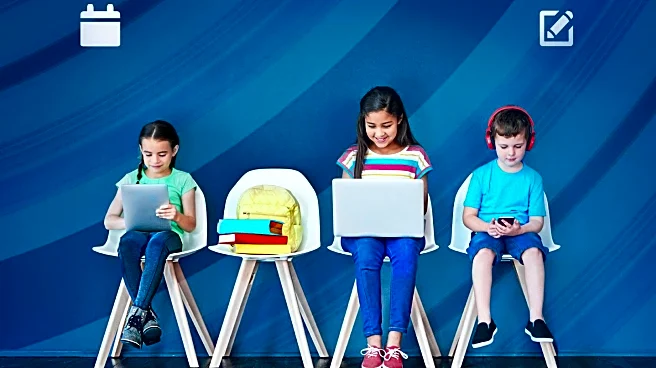What's Happening?
The article discusses the growing concern over the negative influences of technology on children, particularly in terms of behavior, mental health, and attention span. It highlights the importance of digital parenting strategies, such as restrictive methods and co-use mediation, to mitigate these effects. Restrictive methods involve setting limits on screen time and using filters, while co-use mediation encourages parents to engage with their children during technology use. These strategies aim to improve parent-child relationships and communication, and reduce time spent on electronic devices.
Why It's Important?
The significance of this development lies in its potential to reshape child development in the digital age. As technology becomes increasingly integrated into daily life, understanding its impact on children is crucial for parents and educators. Effective digital parenting can lead to better socioemotional outcomes, improved communication, and reduced behavioral issues. This approach empowers parents to take an active role in their children's media consumption, fostering healthier habits and relationships. It also addresses broader societal concerns about the mental health crisis and declining attention spans among youth.
What's Next?
Parents and educators are encouraged to adopt these digital parenting strategies to create a balanced approach to technology use. Future research may focus on refining these methods and exploring their long-term effects on child development. As technology continues to evolve, ongoing dialogue and adaptation will be necessary to address emerging challenges. Stakeholders, including policymakers and educational institutions, may consider integrating these strategies into broader child development programs and curricula.
Beyond the Headlines
The ethical dimension of digital parenting involves balancing children's autonomy with protective measures. Parents must navigate the fine line between restriction and empowerment, ensuring that children develop critical thinking skills and media literacy. This approach also highlights the cultural shift towards more interactive and engaged parenting, reflecting changing attitudes towards technology's role in family life.












